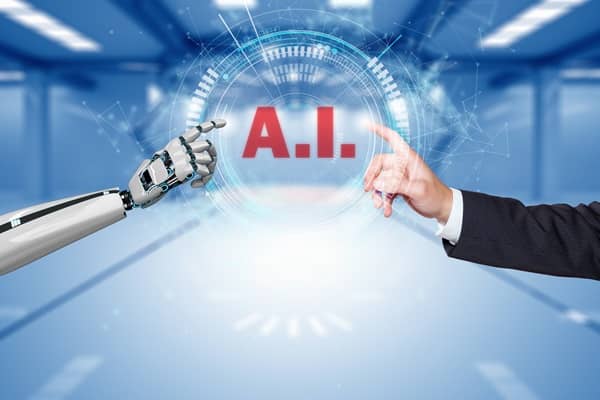Bussiness
Ciaran Bunting on how AI is transforming software engineering – London Business News | Londonlovesbusiness.com

Artificial intelligence (AI) has rapidly emerged as a transformative force across various industries, and software engineering is no exception. Ciaran Bunting, a seasoned software engineer, provides an in-depth look at how AI is revolutionising the field, bringing unprecedented changes and opportunities.
The evolution of software engineering
Software engineering has always been a dynamic field, continually evolving to meet the demands of new technologies and methodologies. From the early days of manual coding and punch cards to the era of high-level programming languages and integrated development environments (IDEs), the profession has seen significant advancements. However, the integration of AI into software engineering represents a paradigm shift that is poised to redefine the industry.
Enhancing code quality and efficiency
One of the most notable impacts of AI in software engineering is its ability to enhance code quality and efficiency. AI-powered tools, such as code analysers and automated testing frameworks, can detect bugs, vulnerabilities, and performance bottlenecks with greater accuracy than traditional methods. These tools leverage machine learning algorithms to analyse vast codebases, identifying patterns and anomalies that might elude even the most experienced developers.
AI-powered code analysis
For instance, AI-driven static code analysis tools can review code in real-time, providing instant feedback and suggesting improvements. This not only accelerates the development process but also ensures that the code adheres to best practices and industry standards. As a result, developers can focus on more complex and creative aspects of software development, knowing that routine tasks are handled efficiently by AI.
Intelligent automation and DevOps
AI is also transforming DevOps practices by introducing intelligent automation. Continuous integration and continuous deployment (CI/CD) pipelines are now augmented with AI capabilities that optimise build processes, predict failures, and recommend corrective actions. This intelligent automation reduces the likelihood of human error, minimises downtime, and ensures a more reliable and seamless delivery of software updates.
Real-time performance monitoring
Moreover, AI-driven tools can monitor and analyse system performance in real-time, identifying potential issues before they escalate into critical problems. By proactively addressing these issues, organisations can maintain high availability and performance of their applications, ultimately enhancing user experience and satisfaction.
Empowering developers with AI-powered IDEs
Integrated Development Environments (IDEs) have long been a staple in the toolkit of the software engineer. The integration of AI into IDEs has taken their capabilities to new heights. Modern IDEs, powered by AI, offer advanced features such as intelligent code completion, automated refactoring, and context-aware suggestions.
Intelligent code completion
These AI-powered features enable developers to write code more efficiently and accurately. For example, AI-driven code completion can predict and suggest entire lines of code based on the context and previous patterns, significantly reducing the time spent on repetitive tasks. Additionally, automated refactoring tools can identify and optimise inefficient code structures, improving overall code quality and maintainability.
Facilitating collaboration and knowledge sharing
AI is also playing a pivotal role in enhancing collaboration and knowledge sharing among software engineering teams. AI-powered chatbots and virtual assistants can provide instant access to documentation, coding standards, and best practices. These virtual assistants can answer queries, offer code snippets, and even troubleshoot common issues, fostering a more collaborative and productive work environment.
AI-driven knowledge management
Furthermore, AI-driven knowledge management systems can analyse and categorise vast amounts of documentation, making it easier for developers to find relevant information quickly. This not only accelerates the learning curve for new team members but also ensures that valuable knowledge is preserved and accessible across the organisation.
The future of AI in software engineering
As AI continues to evolve, its impact on software engineering will only grow more profound. Emerging technologies such as natural language processing (NLP) and generative adversarial networks (GANs) hold immense potential for further advancements. For instance, NLP can enable developers to interact with code using natural language commands, making coding more intuitive and accessible. GANs, on the other hand, can be used to generate realistic test data, improving the accuracy and reliability of testing processes.
Human-AI collaboration
Ciaran Bunting envisions a future where AI and human ingenuity work hand in hand to push the boundaries of software engineering. While AI will undoubtedly take over many routine and repetitive tasks, the creative and problem-solving aspects of software development will remain firmly in the hands of skilled engineers. By embracing AI, software engineers can unlock new levels of productivity, innovation, and quality, ultimately shaping a brighter future for the industry.
Conclusion
In conclusion, AI is revolutionising software engineering in ways that were once unimaginable. From enhancing code quality and efficiency to facilitating collaboration and knowledge sharing, AI is transforming every facet of the field. As Ciaran Bunting aptly puts it, “The integration of AI into software engineering is not just a technological advancement; it is a fundamental shift that will redefine the future of our profession.”










